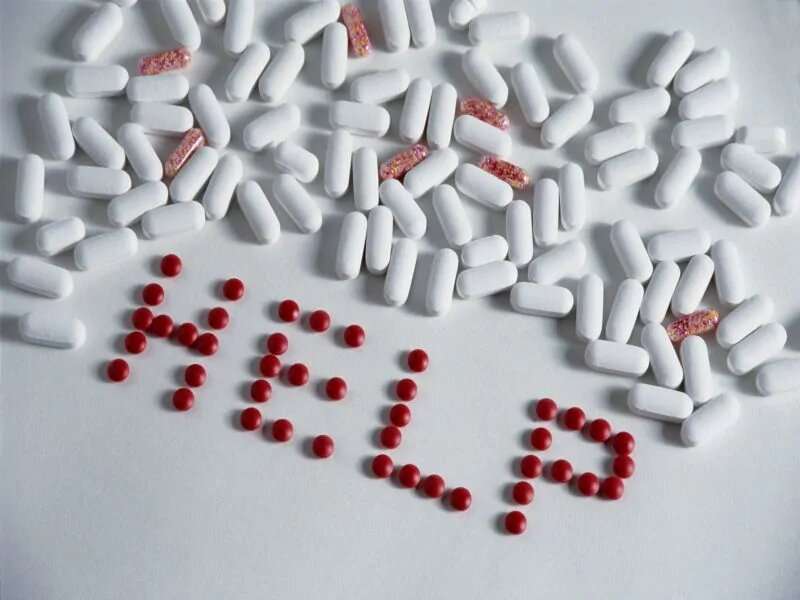Don't believe the hype: bogus products, coronavirus scams abound

(HealthDay)—Can zinc help shorten a COVID-19 infection? Will vitamin C or other supplements prevent it?
These claims and plenty more can be found on social media and internet sites, but be advised: There is no pill or treatment that can prevent or cure COVID right now.
"We want to think that there is a quick way to get rid of this. But there is not a product out there that will keep you from getting the coronavirus," said Rebecca Dutch, a virologist with the University of Kentucky in Lexington.
The pandemic has spawned a wave of products claiming to protect you by boosting your immune system—a simple claim people think they understand, said retired psychiatrist Dr. Stephen Barrett, who runs Quackwatch, a website that debunks pseudoscientific claims.
"They think, 'If I can boost my immune system, I'll be more resistant to the virus,'" but it's just not that simple, he said.
"The immune system is quite complex," Barrett explained. "There's not even a scientific process called strengthening or boosting the immune system."
He agreed with Dutch: "There is no product you can take that will prevent or cure COVID," he said.
Even a group representing supplement makers agreed. Two major industry groups —the Council for Responsible Nutrition and the American Herbal Products Association—recently asked stores selling dietary supplements to refuse to stock or sell any products that claim to treat, cure or prevent COVID-19.
"We are not aware of any clinical research studies that demonstrate the efficacy of using a dietary supplement specifically to prevent or to treat COVID-19," the trade groups said in a statement.
They said consumers should report such products to the U.S. Food and Drug Administration.
The FDA has already sent warning letters to a number of companies selling fraudulent COVID-19 products. The agency also cautions that there are no approved preventatives or treatments for COVID-19.
Believing in magic?
Given the expert consensus, why are people still buying and trying these products?
Barrett said people "believe what they hear the most" and there's no organized effort to set the record straight.
"There's no economic incentive to say, 'This doesn't work,'" he said. "There's no money to be made rebutting false claims." But there's a lot of money to be made promoting those false claims, so that's what people tend to hear over and over, Barrett added.
People also tend to believe something works once they try it, he said. Say, for example, that you've recently had colds that lasted about a week. You try a supplement that says it will shorten a cold. If your next cold lasts four days, you'll think the supplement worked. But most illnesses are self-limiting, Barrett said. It might just be that you caught a virus that tends to last only a few days this time.
Dr. Philip Muskin, a professor of psychiatry at Columbia University Medical Center in New York City, also points to the fear factor.
"People are scared and when you're scared, your judgment may be impaired," he said. "You just want a solution, and up comes a photo of a beautiful woman or man in a beautiful setting telling you that a certain herbal or vitamin supplement can help you."
Even though you know it can't be real, everyone wants to believe in magic, Muskin said.
Older adults are more vulnerable
"Older adults are more often socially isolated and maybe a little lonelier, which opens them up to people who want to take advantage," said Dr. William Dale, director of the Center for Cancer and Aging at City of Hope in Los Angeles.
Older people also tend to be more trusting and use their phones more often than most, leaving them vulnerable to phone solicitations, he added.
If you suspect someone has tried to scam an older friend or relative, Dale recommends you ask them what they've been told, hear their concerns and then correct misinformation.
"Take them seriously. Don't be dismissive. Take a kind approach. Remind people that right now, there are no cures for COVID. Try to reset the conversation," he said.
One way to do this is by mentioning their medications. Ask if they have a good supply on hand or if they need to contact their doctor for refills. "Sometimes the easiest way is to have the conversation about medicines and then say, 'Oh, this might interfere with your medication. You should ask your doctor if this is safe,'" Dale suggested.
What does help?
It also helps to remind older loved ones that people who don't have COVID-19 symptoms can still transmit the disease and that social distancing is important, Dale said.
All of the experts recommend washing your hands often—especially whenever you have been outdoors.
"Regular soap disrupts this virus," Dutch said. "Any soap is OK, even if it's not antibacterial. If you have access to a sink and soap, use that. Save your hand sanitizer to use when you're out."
Muskin and Dutch both emphasized the importance of staying healthy overall. Exercise, eat a balanced diet, get stress relief from things like meditation and do your best to get enough sleep.
Experts agree that it's important to consider the source of any health information.
"We're in an unprecedented time of 'information' coming in. Trying to decipher who is the best to listen to and sorting out what makes sense and what doesn't is harder than ever," Dale said.
Barrett recommends checking sources you know are reputable, such as the FDA, the U.S. Centers for Disease Control and Prevention, and major universities' websites.
More information: For frequently asked questions on COVID-19, see the U.S. Centers for Disease Control and Prevention.
Copyright © 2020 HealthDay. All rights reserved.



















